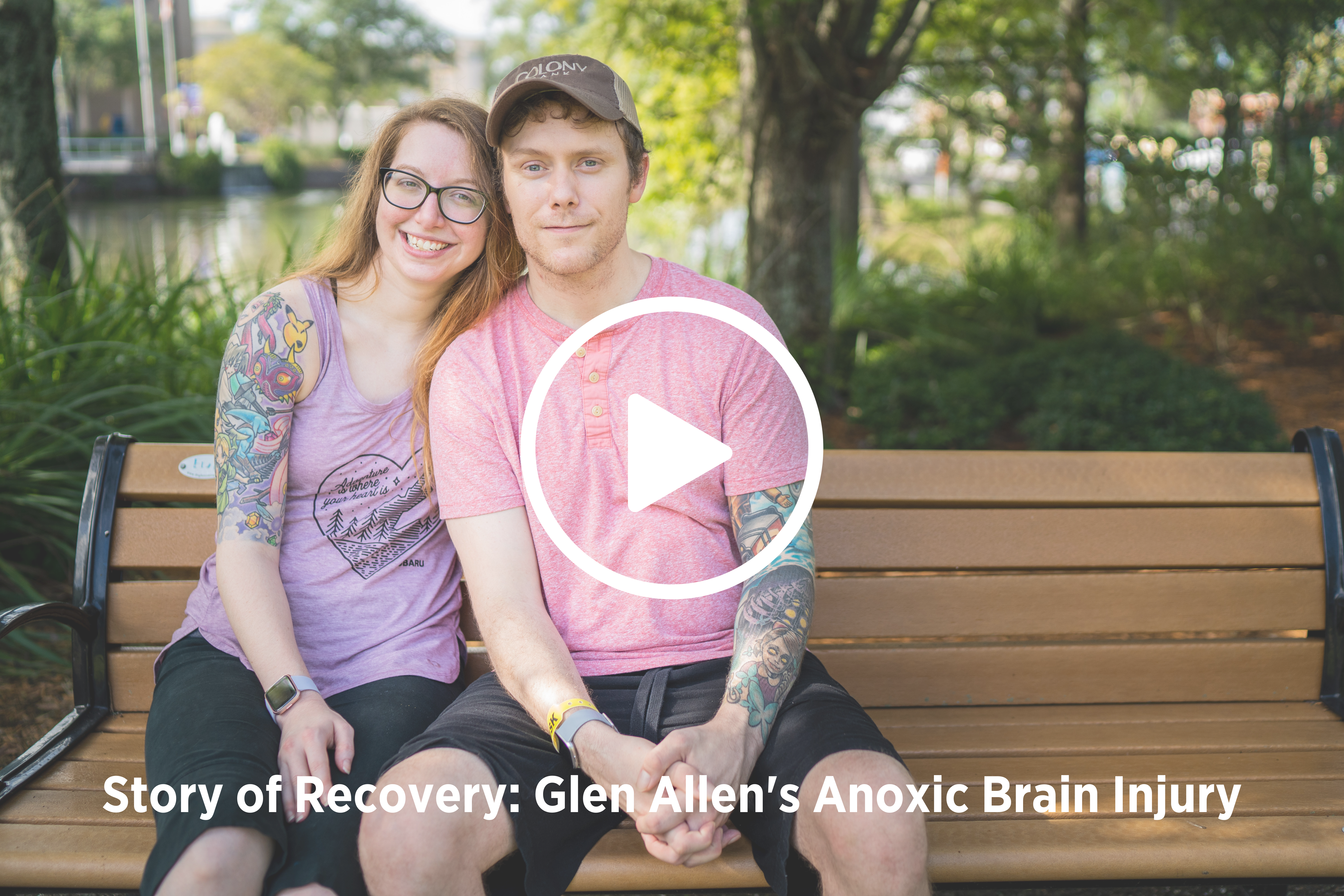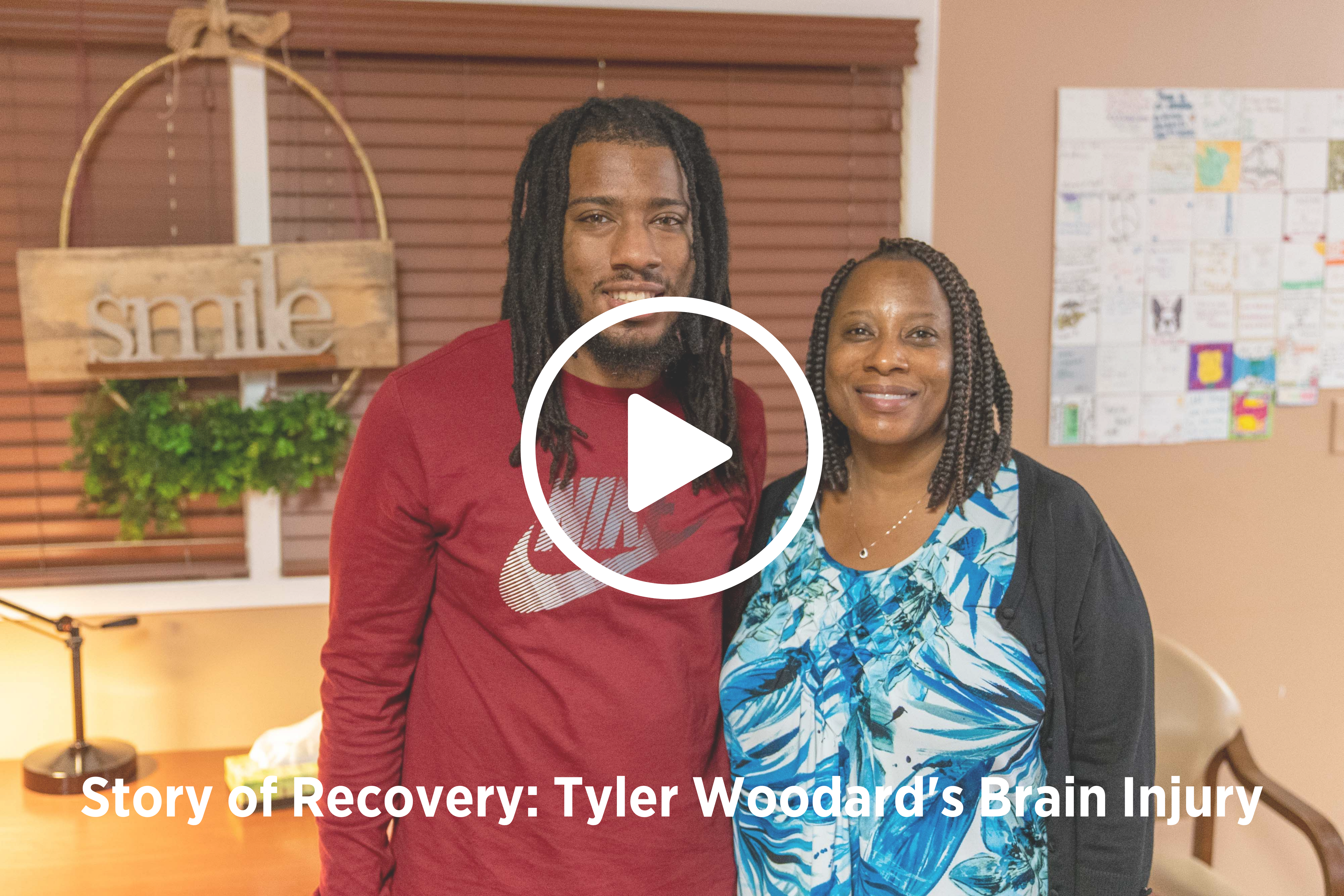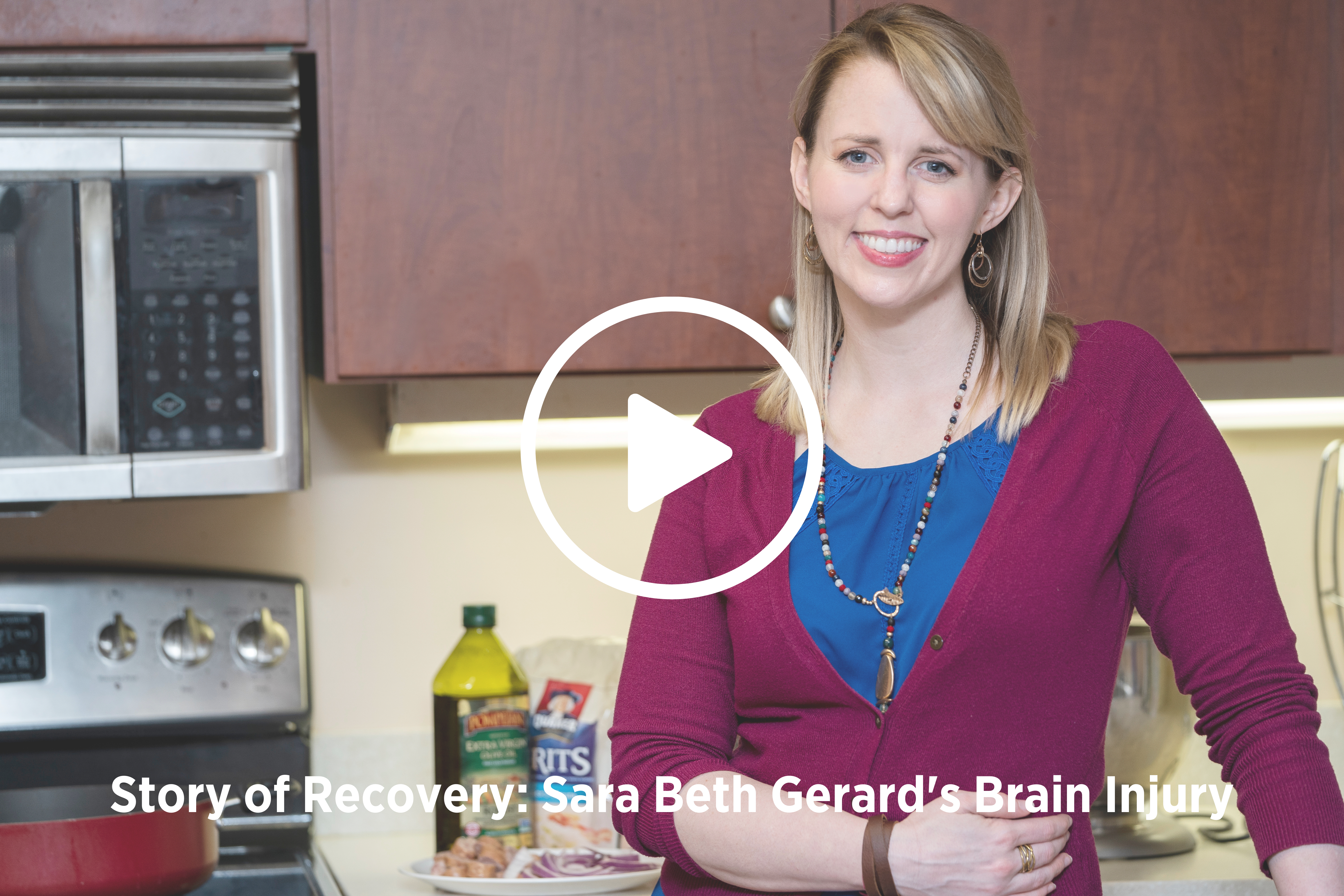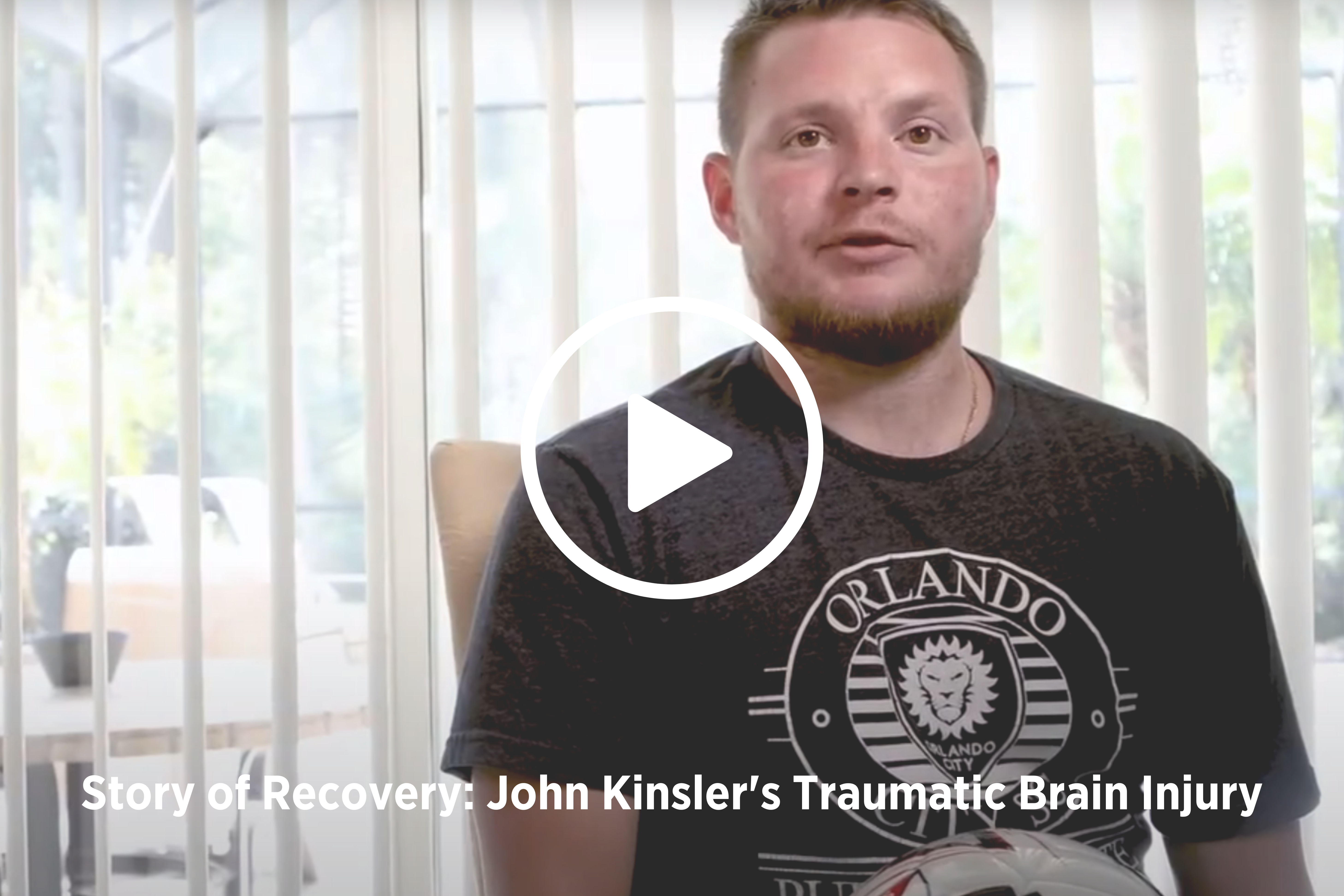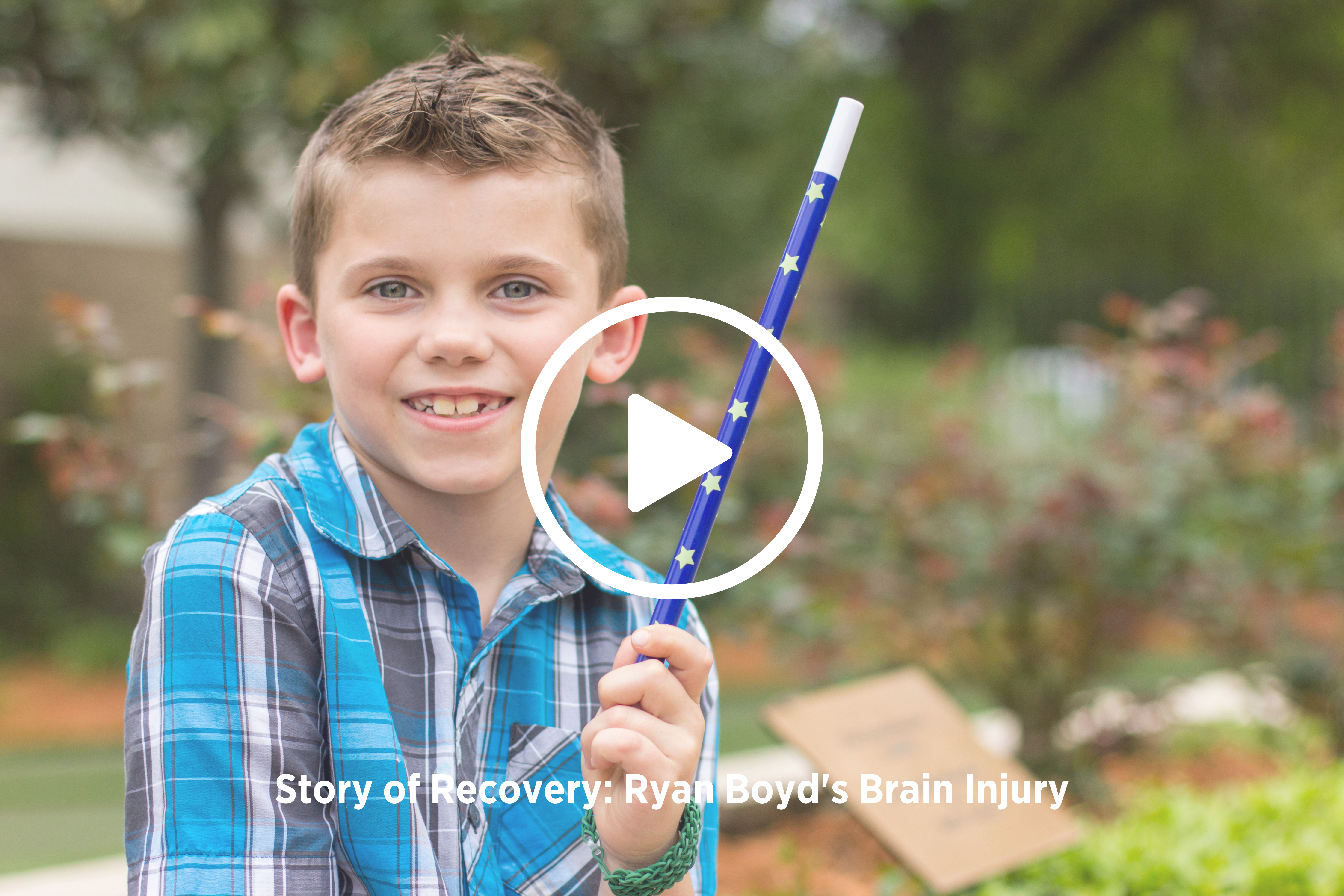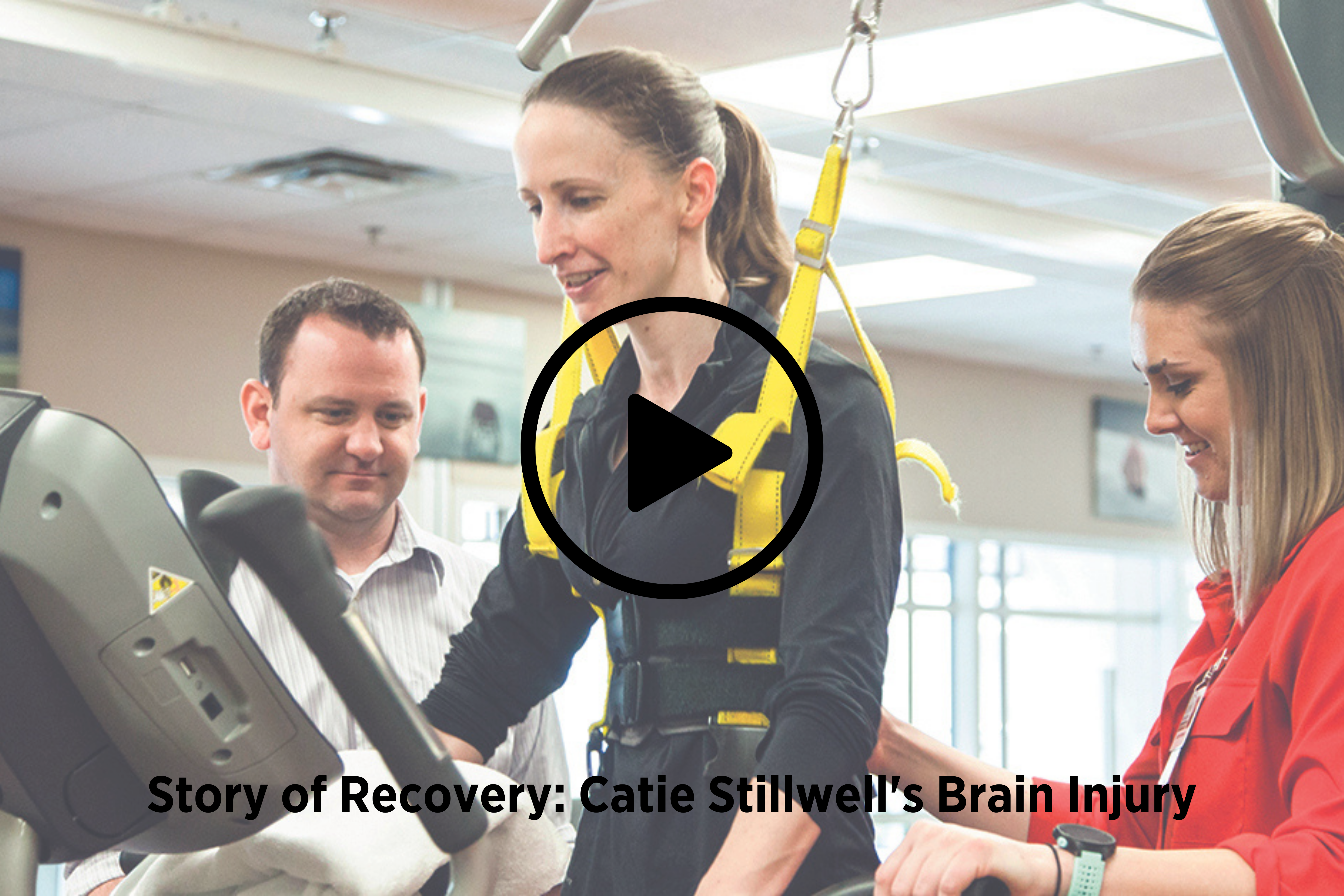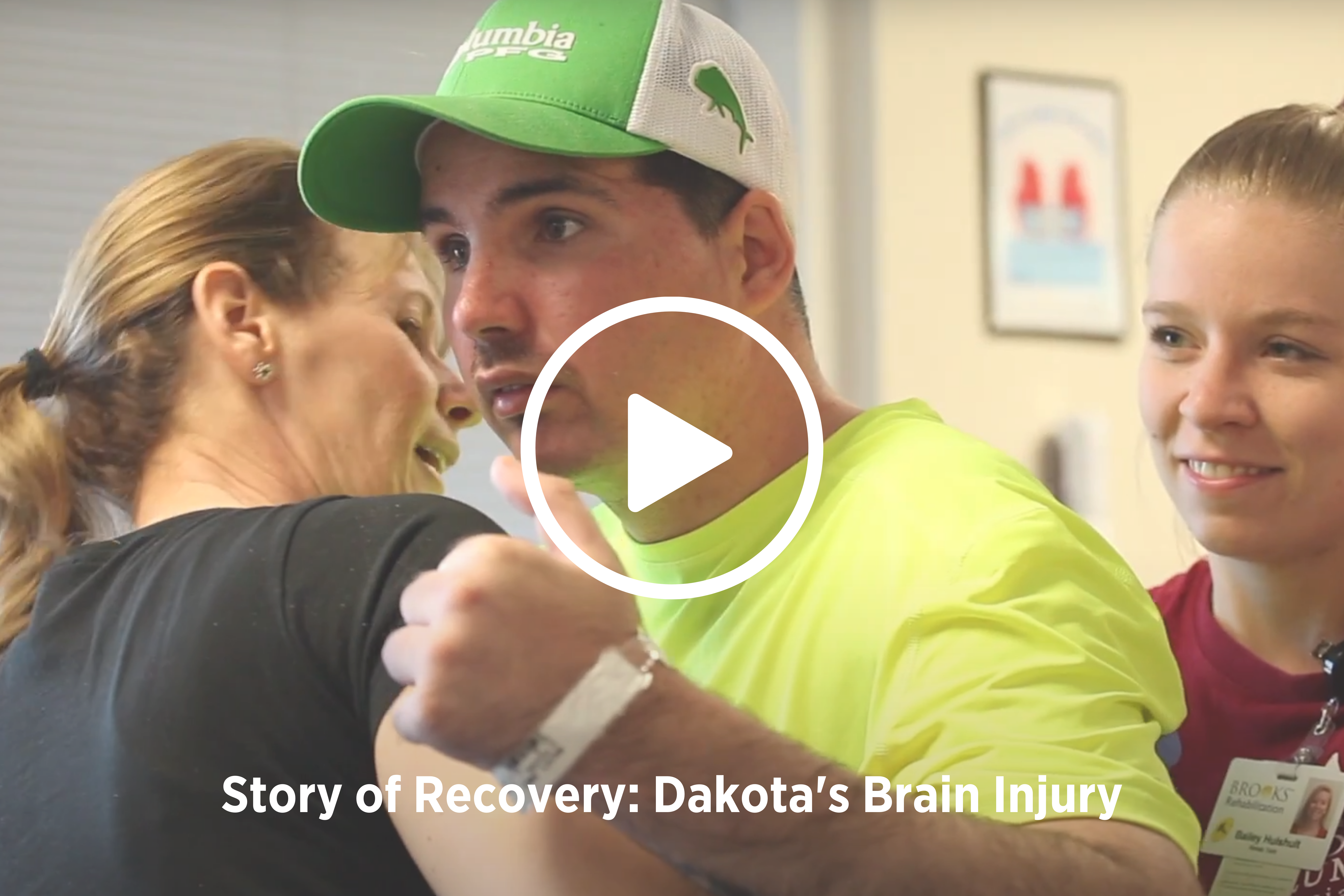Comprehensive Brain Injury Rehabilitation Program
At Brooks, we understand that a brain injury or illness is complex and affects each person differently. That’s why our Brain Injury Rehabilitation program offers an individual care plan focused on each patient’s specific needs and goals.
Our specially trained staff and state-of-the-art technology and equipment will help provide patients with their greatest outcomes. We treat individuals progressing through various levels of brain injury from a minimally conscious state to a highly functional and interactive state.
We have over 50 years of post-acute hospital care experience and we provide care to the top 1% of complex traumatic injury cases in the nation. Our inpatient hospitals are accredited by the Commission on Accreditation of Rehabilitation Facilities (CARF) and Joint Commission for demonstrating a commitment to patient care and performance outcomes.
Expert Brain Injury Team
Our highly trained, physician-led brain injury rehabilitation team understands that recovery means adapting to a new way of life. Our clinicians are recognized leaders in their field, regularly conducting research and speak at conferences all over the world.
Our brain injury team includes:
- Doctors specializing in physical medicine and rehabilitation overseeing your recovery
- Physical, occupational and speech therapists to help strengthen your muscles and regain your ability to perform daily activities and communicate.
- Neuropsychologists to determine if there are deficits in concentration, memory, reasoning and problem solving
- Cognitive rehabilitation therapists to treat memory and executive deficits
- Certified rehabilitation nurses experienced in brain injury care
- Case managers to coordinate and help plan your care
All of our clinicians receive ongoing training through the Brooks Institute of Higher Learning where we offer world-class educational opportunities to the local and regional healthcare community and boast of a nationally recognized clinical residency program.
We also believe that a patient’s family and caregivers are an indispensable part of our team. We ask them to participate in a patient’s rehabilitation process from day one, first observing, and then becoming involved over time. We demonstrate necessary care skills, share important information, and ultimately meet patient’s loved ones where they are to ensure a successful transition home when the time comes.
Brain Injury Rehabilitation Programs
Our passion for our patients makes us who we are. We go above and beyond to ensure each patient and their caregivers/family members are taken care of, both in regards to non-TBI and TBI treatment, and holistically as an individual. We provide brain injury recovery programs at all levels of the rehabilitation journey.
Every year, the Brooks Foundation provides approximately $10 million in charity care. We remove the red tape so our clinicians can do what they do best — care for patients.
Disorders of Consciousness
The Disorders of Consciousness (DOC) program is a specialized short-term program designed for patients who present in a reduced or minimally conscious state. This program allows comprehensive evaluations and therapy for this special population earlier than the usual rehabilitation process, which typically requires a patient to be able to engage and follow directions.
In the DoC program, a patient will have a comprehensive team evaluation, led by a neuropsychologist, which is completed with a cognitive therapist, a physiatrist, as well as physical, speech and occupational therapists. The evaluation provides the patient’s family with an accurate clinical diagnosis of their loved one’s recovery state.
A patient in the DoC program will be provided specific therapies, medications and stimulation that may promote recovery. The team conducts regular measurements to determine progress. If in that timeframe the patient progresses and can demonstrate consistent and purposeful interaction with the environment, such as using basic objects or reacting to communications or commands, they are said to have “emergence from DoC.” The patient would now be able to engage with a therapist — even if at a low level — and would become a candidate for traditional brain injury rehabilitation.
If a patient does not emerge within an allotted timeframe, it does not mean the patient has stopped progressing or won’t emerge later. However, it is not optimal to leave the patient in the hospital after that time. Therefore, a major part of the DoC program is to fully train and equip patient families/caregivers to care for their loved ones at home, and to recognize progress and potential emergence for themselves.
Brain Injury Day Treatment Program
The Brooks Brain Injury Day Treatment program offers therapy to help patients with brain injuries transition from an inpatient setting to their home. This program helps to ease the transition from acute care or inpatient rehabilitation to home. It was created to help improve cognitive/thinking, communication ability, social skills and emotional stability for patients, all while they continue to regain physical abilities. The program creates a wonderful environment for growth, recovery, education and camaraderie.
Neuro Recovery Centers
Our Neuro Recovery Centers (NRC) are a state-of-the art rehabilitation center offering specialized equipment for customized rehabilitation during and after traditional therapy. This unique gym allows patients to continue ongoing exercise and conditioning to maintain and improve functional movement and abilities. Members receive access to our innovative technology and can utilize the gym up to six days per week.
Physical Therapy technology utilized:
- Zero G
- Body weight supported treadmill
- FES elliptical
- Motorized elliptical
- Bioness L300
- Aquatic therapy
- Wheelchair evaluations
Independent Program Equipment and Services offered:
- FES cycle
- Armeo spring
- Bioness H200
- Sabeo glove
- Diego
- Amadeo
- Circuit training
- Personal training
- Aquatics
Aphasia Center
The Brooks Rehabilitation Aphasia Center (BRAC) is dedicated to helping patients with aphasia achieve the highest level of recovery and participation in life. The Aphasia Center is committed to providing support, education and training in a stimulating communication environment to those affected by aphasia, including the family and communication partners. The center provides different programs depending upon patients’ and families’ needs.
Adaptive Sports and Recreation
Brooks Rehabilitation offers one of the most comprehensive and diverse adaptive sports and recreation programs in the country. Our program provides opportunities for fun, fitness and friendship to individuals of all ages and abilities living with physical and/or visual disability. Our activities enable the essential social connection and physical activity that promote health, well-being and quality of life. Individuals may enjoy recreational or competitive participation in year-round team and individual activities. No experience is required and there is no cost for participation — all equipment, instruction and coaching provided is free to all individuals.
Brain Injury Clubhouse
Another great resource is our post-discharge facility for brain injury patients, the Brooks Brain Injury Clubhouse. This community benefit program provides a place for social interaction, so patients and their families can connect with others experiencing similar journeys.
Brain Injury Rehabilitation Technology
Our brain injury treatment plans are designed to meet patients’ and family members’ recovery needs and goals. Our treatment plans help patients progress from one care setting to the next using the latest state-of-the-art equipment and innovative, scientifically proven technologies. Our clinicians are dedicated to helping patients reach the highest level of recovery and participation in life using the best available treatment technologies.
After a brain injury, our expert clinicians will evaluate patients’ needs and determine which technologies can be used to provide the best results.
- Hybrid Program: At Brooks Rehabilitation we recognize that neuro-recovery takes a lot of time and hard work and so our goal is to provide therapy in the inpatient rehabilitation setting that can be continued as you or your family members’ progress. To support this, our Hybrid Program is designed to bridge the gap from inpatient rehabilitation to outpatient by offering structured cognitive and exercise-based programs. Baseline non-TBI and TBI treatment requires three hours of therapy each day. However, neuro-rehab is most successful when therapy is more intense, and relates back to things patients love to do. That is the basis for the Hybrid Program — individuals can increase therapy and drive their own recovery to meet their personal goals, in addition to the standard daily therapy they are provided.
- FES Bike: Functional electrical stimulation of the peripheral nerves along with the patterned movement of this bike allows patients’ muscles to work even if there is limited or no muscle control due to a brain injury.
- Body weight support: Utilizes a body harness that is worn by the patient and suspended from the ceiling and/or body weight support device. Body weight support allows for a percentage of a patient’s weight to be offloaded by the device in order to create a permissive environment for challenging activities such as walking, jumping, and squatting.
- Cognitive Lab: A computer and tablet-based lab with interactive software and applications to challenge and improve cognition and communication.
- Circuit Training: A combination of strength, balance, and endurance activities that are individually prescribed to promote neurorecovery after a brain injury.
- Exoskeletons: Robots worn by patients providing them with mechanical assistance to walk. This assistance allows patients to take larger more consistent steps in order to accelerate motor learning after a brain injury.
- Erigo Pro: The Erigo combines gradual verticalization with cyclic leg movement and loading to allow for early mobility in an upright position. The activity is enhanced by the synchronized functional electrical stimulation (FES) in the ErigoPro. By providing a safe solution for early mobilization, the Erigo counteracts the negative effects of immobility and accelerates the recovery process with intensive sensorimotor stimulation.
Our Brain Injury Patient Recovery Stories
Learn more about our brain injury rehabilitation program from our patients. Watch their stories of recovery and discover what the road to recovery looks like at Brooks.
Become a Patient at Brooks
If you or a loved one is suffering from a brain injury, Brooks Rehabilitation is here to help at all steps of the recovery process.
We provide world-class care starting at our inpatient hospitals and skilled nursing facilities to our home health services and outpatient therapy clinics. Click here to reach out and request more information.

